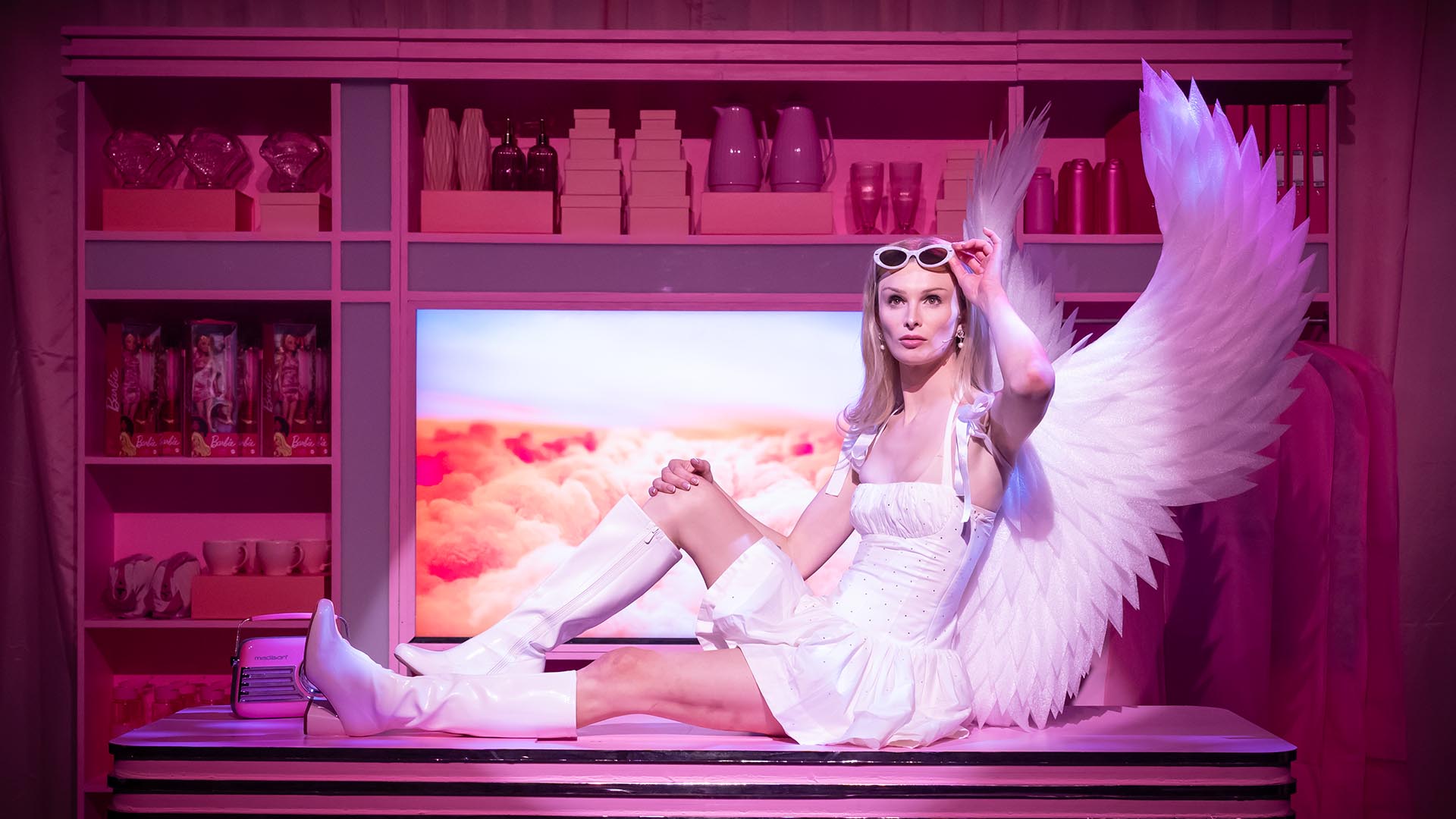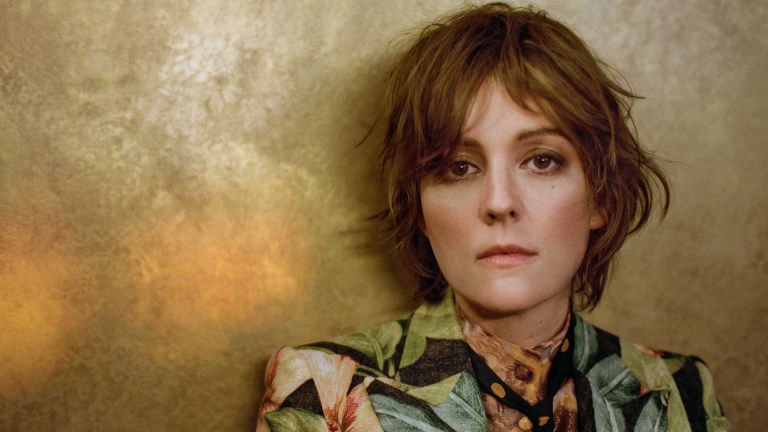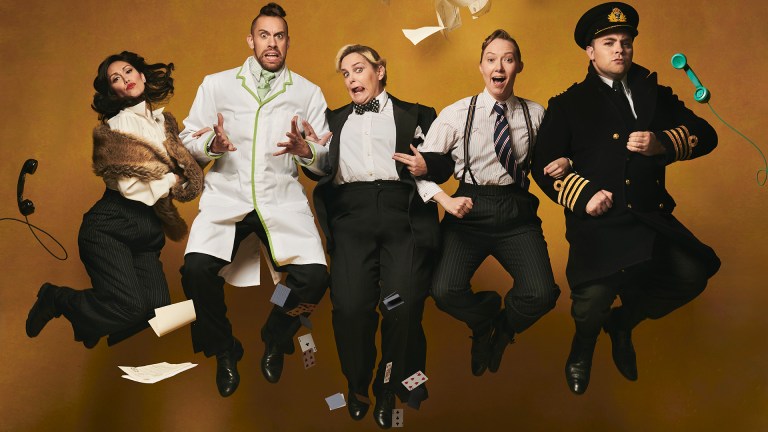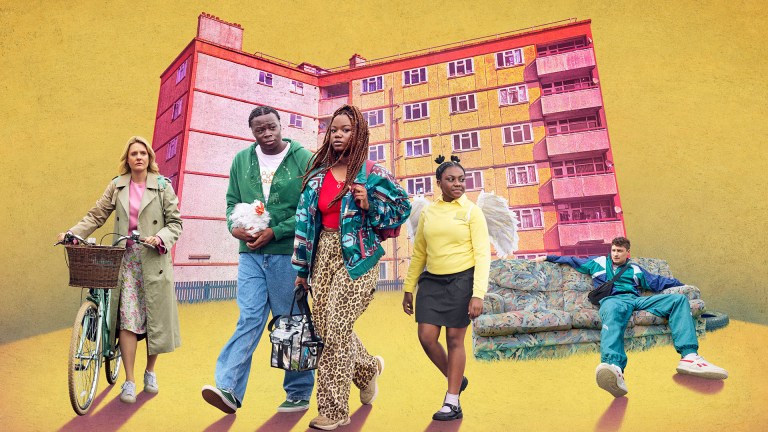Mulvaney, who grew up in a devoutly Catholic household in San Diego, was appearing as Elder White in the US touring production of The Book of Mormon until it was halted by the pandemic in March 2020. That month, she joined TikTok and poured her thwarted performer’s energy into playful videos celebrating her queerness and love of animals.
At first, Mulvaney was a fun, frothy lockdown tonic, but her following snowballed when she came out as a trans woman in March 2022. At this point, she started documenting her transition with a daily video series called Days of Girlhood, in which she shared everything from her facial feminisation surgery to her decision to keep her gender-neutral birth name.
As Mulvaney’s popularity exploded, she began to break out of TikTok and into the news cycle. In October 2022, she discussed trans rights with Joe Biden in a YouTube video produced by the online news organisation NowThis.
Get the latest news and insight into how the Big Issue magazine is made by signing up for the Inside Big Issue newsletter
When Dylan Mulvaney asked Joe Biden whether he believes individual states should have the right to ban gender-affirming healthcare for trans people, he replied: “I don’t think any state or anybody should have the right to do that as a moral question and as a legal question. I just think it’s wrong.”
Mulvaney’s Biden interview made her a target for trolls, but she attracted even more transphobic vitriol in April 2023 when she partnered with Bud Light for a seemingly harmless advertising deal. In an Instagram video, Mulvaney showed her followers a beer can with her face on it that the brand had commissioned to mark her 365th day living as a trans woman.
Advertising helps fund Big Issue’s mission to end poverty
The response from toxic right-wing agitators was both hysterical and terrifying. Several Budweiser factories received bomb threats and boorish, bro-ish country singer Kid Rock helped to instigate a Bud Light boycott by posting a video of himself shooting cases of the beer with a submachine gun.
As the transphobic backlash raged, Mulvaney went offline for three weeks before posting a TikTok video in which she spoke eloquently about “struggling to understand” people’s need to “dehumanise and be cruel” just because they didn’t like a beer brand aligning with her.
Then in June 2023, she opened up about the psychological toll. “For months now, I’ve been scared to leave my house,” Mulvaney said on TikTok. “I have been ridiculed in public. I’ve been followed and I have felt a loneliness that I wouldn’t wish on anyone.” She also called out “the brand” – which she pointedly didn’t mention by name – for failing to reach out to her during the furore.
Today, Dylan Mulvaney is understandably wary of wading back into this hellscape, but she does talk thoughtfully about the way she was politicised after she came out as trans and built a following big enough to attract corporate interest.
“I feel like I was partially responsible for that, especially early on, [by] taking opportunities that did put me further into the political spotlight,” she says. “But you know, I’ve never called myself an activist and I’ve never wanted to run for office or anything like that.”
Still, she has sensible advice for young queer people – a sizable slice of her following – who are struggling with the presidential election because of the way LGBTQ+ rights are being used as a political football. “I think voting this year kind of feels like a crisis response. I’m not speaking for the [entire] trans community, but when I think of myself and what’s on the line, it’s a lot,” she says.
Advertising helps fund Big Issue’s mission to end poverty
“Especially with the amount of information we have access to,” Mulvaney continues, “it’s important to find a way [to access it] that suits you. And make sure it’s the right information, coming from good sources. It should feel like there’s a lot on the line, because there is.”
Mulvaney knows she is hardly the first or last person from a marginalised group to have their very identity made political. “A lot of me doing this one-woman show now is to kind of shift that narrative,” she says.
Written by Mulvaney and directed by Tim Jackson, whose credits include the West End hit Two Strangers (Carry a Cake Across New York), FAGHAG is a sharp, campy and autobiographical play with songs. Early on, we see young Dylan being prescribed a fictional drug called “twink” as a means of suppressing her gender dysphoria.
It’s a clever way of exploring the many years in which Mulvaney presented as a ‘twink’ – a young, slender gay man – because it was more palatable to society than being a trans woman. Later in the show, she satirises the highs and lows of her influencer era when she is hired by a fictional corporation to market a product called “trans-palatability”.
FAGHAG ends with “I Am a Woman”, a witty original song that celebrates the fact Mulvaney’s identity is knotty, evolving and can’t be neatly packaged up for public consumption.
“I’ve stopped trying to put myself into so many boxes,” she tells me at the end of the interview. “Especially early on, I wanted to make everything as simple and clear for people as possible, but I’ve realised life is a lot more complex than that.”
Advertising helps fund Big Issue’s mission to end poverty
For this reason, Dylan Mulvaney no longer sees her transition as a “finish line” to dash towards. “I think of it more as a lifetime experience,” she says. “I mean, I’m so happy in my womanhood and I can’t wait to see what else that brings.”
FAGHAG plays at Assembly George Studio 2 as part of Edinburgh Fringe festival from 1 to 25 August.
Do you have a story to tell or opinions to share about this? Get in touch and tell us more. Big Issue exists to give homeless and marginalised people the opportunity to earn an income. To support our work buy a copy of the magazine or get the app from the App Store or Google Play.










